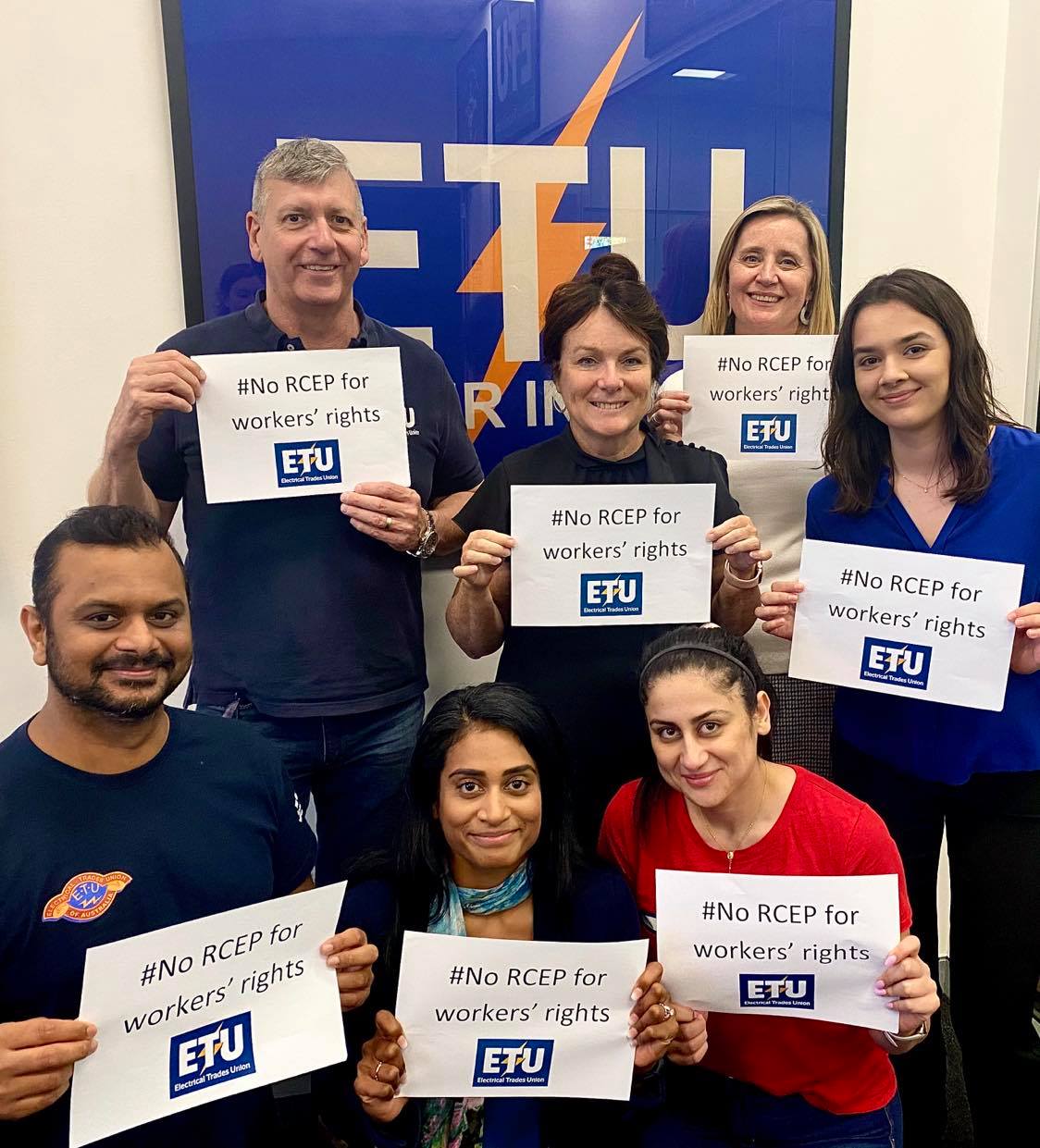This month the Australian Government signed off on a massive secret trade deal that could tip the balance in favour of corporations and screw workers.
The Regional Comprehensive Economic Partnership (RCEP) negotiations began in 2012 between 16 countries: India China, Japan, South Korea, Australia, New Zealand and the 10 ASEAN countries, which represented half the world’s population.
The agreement ultimately comprises 15 countries after India pulled out of negotiations. Since Australia already has free trade agreements with all of the remaining member countries, India’s absence significantly diminishes any benefit that might have been in it for Australian exporters.
The RCEP text remained secret until after it was signed on Sunday 15 November 2020.
The RCEP will be tabled in the next sitting of Parliament and will be reviewed by a parliamentary committee early next year. Despite this review, the committee is unable to change the text, regardless of what it finds wrong with the agreement.
The ETU and other unions have some major concerns with the agreement, including:
- mechanisms which will encourage countries to privatise public owned services like airlines.
- provisions which seek to require countries to share market access to public services and monopoly industries such as such as health, education, water, energy, telecommunications, finance and digital trade with foreign investors and restrict the ability of governments to regulate them in the public interest.
Workers’ rights
The Australian Government should be using trade agreements to improve working conditions and address issues of labour exploitation, including forced labour and child labour.
- The RCEP contains no protections for workers’ rights or human rights: there is no reference to international labour standards or human rights standards, and no labour chapter.
The lack of safeguards for workers’ rights is particularly concerning given the RCEP agreement contains several countries with poor labour rights records.
- Over half of the 15 countries party to the RCEP agreement are ranked as among the worst countries in the world to work, where workers effectively have no access to rights, according to the International Trade Union Confederation’s (ITUC) 2020 Global Rights Index.
- According to the Global Rights Index, the worst RCEP countries for workers – Brunei Darussalam, Cambodia, China, Indonesia, Korea, Laos, the Philippines, and Thailand – have poor labour rights records, including the use of child labour and forced labour; arbitrary arrests, detention and imprisonment of trade union leaders and worker activists; and limitations on freedom of association and collective bargaining.
- Australian companies doing the right thing risk being undercut on labour costs by companies that use forced or child labour and repress union organising activity.
‘The world’s biggest trade deal delivers nothing new for Australia’s export opportunities and instead entrenches the existing trade deals which see Australia removing all import Tariffs within 12 months while countries like China get to maintain 20% import tariffs on thousands of products only committing to gradually reduce them over nearly two decades.’
Learn more here.
We will continue to campaign against this partnership. Keep an eye on our Facebook page for any updates.

